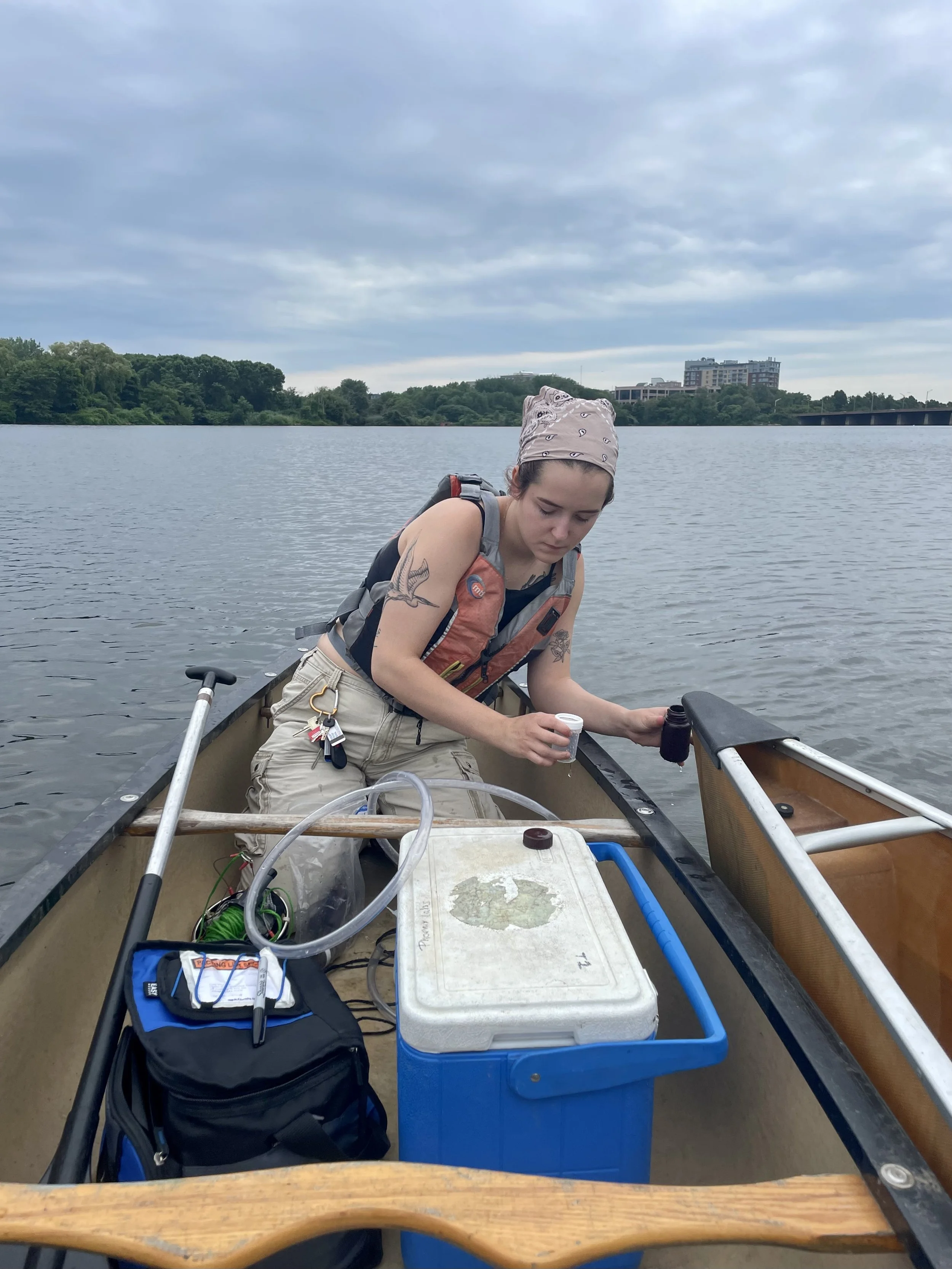Introduction
Kate Schassler joined MyRWA for the summer of 2022 as a Yale Environmental Fellow. Kate completed their Master of Engineering degree from the Civil and Environmental Engineering Department at Princeton University in 2022. With a background in informal education, Kate seeks to learn about incorporating relationship building and community accountability into the context and operations of a science-driven non-profit.
by Kate Schassler
Predominant rhetoric from corporations around the global climate crisis intentionally creates a sense of incapability at the scale of communities. When projected futures of our homes include soaring temperatures and rampant flooding, it’s hard to imagine community care and equity coming to the forefront in such a harsh world – let alone imagine the details of how such change may come about. Boston is a coastal city where the impacts of climate change are manifest through water: droughts, floods, and water pollution. These processes occur at scales far beyond that of any one person’s choices. And at the same time, we are encouraged to act at the individual level, to “do our part.” We’ve all heard it; take shorter showers, use more public transportation, and consume less plastic. And it is still true that just 100 companies are responsible for 71% of global carbon emissions. Actions that elevate individualism over the collective leave us feeling helpless and isolated.
Some turn to the environmental sector for hope but should expect neither absolution nor a single path forward. Historically, United States conservation groups have existed to serve white settlers’ property and ego. The myth of the pristine wilderness fueled conservation efforts. Native people continue to face a genocide older than this country as permitted by (for profit) the federal government. This is the case for many of the national parks being Indigenous-occupied places before being claimed as places of national pride. Through land dispossession and appropriation, environment-oriented organizations are complicit in the sin of manifest destiny. Even when not directly dealing with Native issues, this legacy of erasure continues today when any environmental organization fails to recognize that a racialized context is implicit in any work they do. Conservation non-profits are operating with this history as a baseline. In these spaces, I constantly remind myself and others to ask, “who is this work serving?” Conservation organizations operating in urban settings must be just as conscious of their impact over their intention, especially regarding land use and dispossession. As municipalities build climate-resilient public parks and expand public transit, affordable housing in Boston is more complex and harder to come by. In East Boston, recent “green” development has opened the waterfront to public access – a park that an adjacent luxury housing development has all but monopolized. Marginalized individuals and communities have been bearing the most severe impacts of climate change. Any action on climate must first and foremost center on the needs and perspectives of those who have been denied access to reliable infrastructure and climate-resilient housing, frequently majority Black and brown neighborhoods.
For the past several months, I’ve worked with the Mystic River Watershed Association (MyRWA), a non-profit focused on serving the communities within the watershed and facilitating access to the river(front). MyRWA originated fifty years ago with water quality monitoring to benefit local ecosystems as their primary objective. Since then, their view of their mission has kaleidoscoped outwards and more closely aligned with the needs of people. Perhaps intuitively, people interact more with the river from the shore than physically on the water. MyRWA has incorporated this into their mission and is better advocating for amenities like public parks, greenways (shared-use paths for recreational use and environmental protection), and climate-resilient infrastructure. MyRWA is expanding their interpretation of what a watershed organization is responsible for while confronting that, due to systemic racism both historic and present-day, their work has historically served the majority white, middle- and upper-class people in the suburbs. Part of my work this summer was to advance new programming for communities that, due to systemic racism, the organization has historically neglected to include. The first step is to learn about what environmental work is already happening in these municipalities to address their unique issues. A copy-paste approach won’t work if the actual goal is to meet the needs and values of the community in which they work.
Through my work this summer, “doing my part” has come to mean, “know your neighbors.” Self-reliance was always a myth – we are each inextricable from those around us and our sense of place. In creating and maintaining our communities, we need an expansive, adaptable, and constantly critiqued framework for imagining progress.







